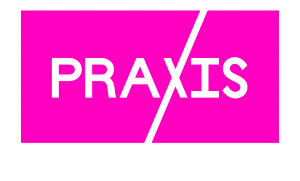Praxis: The Artists’ Union of Ireland are celebrating a policy success, as several changes put forward by our members to the Basic Income for the Arts scheme were implemented by the Department of Tourism, Culture, Arts and the Gaeltacht. Regarding the aims of the scheme, we find that the focus has rightly shifted to recognising the work artists do, bringing financial stability into their lives, and improving their wellbeing, which Praxis members strongly advocated for.
We welcome this effort to recognise our labour and hope that this scheme will be a first step towards a permanent policy that will lift artists out of poverty and precarity. There are however areas of serious concerns and the scheme will need to be closely monitored.
Most urgently, the Department of Tourism, Culture, Arts and the Gaeltacht must immediately resolve the de-facto exclusion of artists with disabilities from the pilot scheme. The scheme must be made exempt from means testing for Disability Allowance, Invalid Pension, Blind Pension, and the Medical Card, otherwise artists relying on these payments will risk having their supports cut. Non-negotiable health costs for people with disabilities range from €9,482 to €11,734 per annum (1). Without these essential supports, artists with disabilities availing of the scheme will be forced to use their basic income payment for health costs, rather than as compensation for their artistic work. Members of the Praxis’ Artists & Disabilities Working Group have assessed that, in their own personal cases, availing of this scheme without the guarantee of their social protection payments would leave them worse off. Performance artist and Praxis member Day Magee explains:
“Having a chronic illness renders my employability volatile, not to mention being an artist. I love my field and work hard for less than minimum wage when I can in spite of illness, but my capacity to do so waxes and wanes, and to retain Disability Allowance would help maintain financial security”
Non-disabled artists will not be means tested for the pilot scheme and there is no upper income limit to access the scheme. Yet artists with disabilities are to face a choice between availing of the scheme and losing their essential healthcare supports, or not applying to the scheme and remaining on disability payments which prevent them from earning more than 140 euros a week. Artists with disabilities and serious health problems also do not have the same capacity for productivity as their non-disabled peers, resulting in unequal opportunities for additional income while on the scheme. Inequality with regards to ability must not be built into the structure of this pilot. The scheme’s altruistic objectives to improve wellbeing and income stability must be catered for all artists. Praxis is calling for this unjust situation to be remedied immediately.
Praxis are also urgently calling for clarity on oversight of the pilot Basic Income for the Arts scheme. We demand that artists themselves, and their unions, be included in the application assessment process and the monitoring and evaluation of the scheme. We demand complete transparency in regards to the Basic Income for the Arts research process, from start to end of the pilot scheme, and access to any data collected by the scheme. We want to see evidence that this scheme is being treated as a research experiment towards a permanent policy and urge the Department of Tourism, Culture, Arts, and the Gaeltacht to begin cross-Government discussions regarding the afterlife of the pilot.
A number of other concerns have been raised by our members regarding the scheme. We are concerned that as this is a pilot running for a limited period, recipients might lose income-related supports that they will have difficulties reclaiming when the pilot ends, in the case of the scheme not being made permanent. We propose a temporary suspension of the income threshold for such supports as HAP, State Pension, Carers Allowance etc, for the duration of the Pilot Scheme.
Regarding eligibility, we are concerned by the exclusion of some creative practices, such as craft and criticism. This is largely compensated for by the broad range of eligibility criteria, which should enable all with a creative practice to make a case for inclusion. We will offer support to members challenged by the requirements to prove eligibility for the scheme. As an artists’ union we don’t represent arts workers, but we extend our solidarity with creative arts workers who have been unfairly excluded from the scheme.
Regarding proving eligibility for the scheme, we feel the time frame should be opened out to ten years in retrospect as against the proposed five years. This will allow for the inclusion of artists who have been forced to suspend their arts career while they take other work in order to qualify for a mortgage for example, or while they raise children.
Regarding the anonymization of applicants and randomised selection, we have advocated that the scheme establish a minimum sample size for specific cohorts (artists with disability, carers, those with dependents, artists living in poverty etc.) in order to be sure that the effects of the scheme on these groups be adequately captured in the research.
Praxis believes that a Universal Basic Income for all would help us achieve our vision for a society of unleashed artistic potential and equal artistic access, by providing stability for everybody to work as an artist if they so choose. We hope that this pilot will be a first step towards achieving this aim and, as always, stand in solidarity with other precarious workers deserving of income stability.
(1) ‘Cost of Disability Research Report,’ 2021, The Department of Social Protection, Ireland

